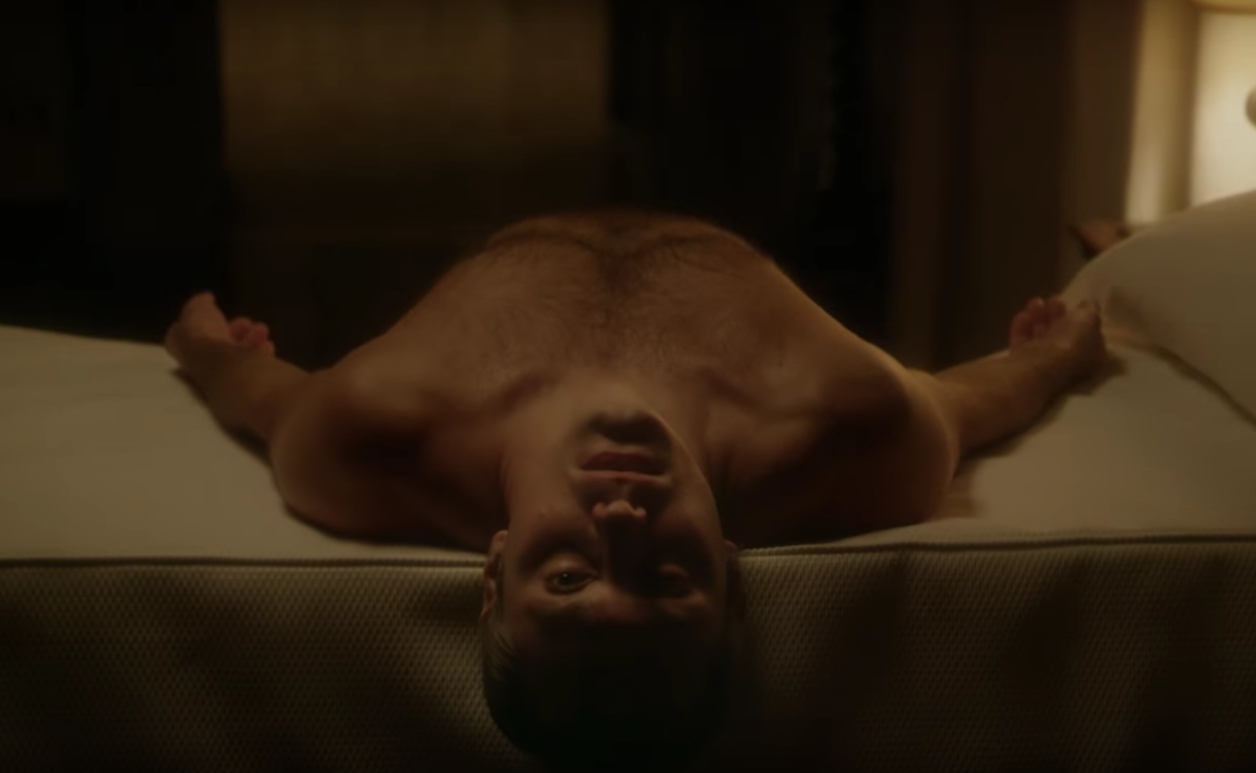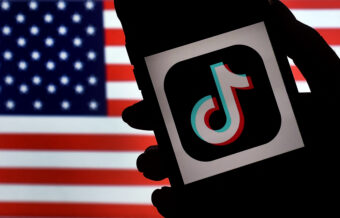When the Young Pope prays, and when he showers, he sometimes leaves the radio on. The sleek, white device on Pope Pius XIII’s Vatican bedside table scans like a misplaced set piece from a Black Mirror episode’s near-future. It emits bursts of static at random intervals–eventually, the feedback becomes the center of an spectral electro-acoustic overture for the first episode of The Young Pope. It underscores Jude Law’s character–a mysterious, head-strong American appointed, against all expectations, to the highest possible post in his field (sound familiar?)–striding aloofly through the halls of the Vatican in the credits sequence.
When the radio fuzzes up while Pius XIII–born Lenny Belardo, likely somewhere on Long Island–is at intense prayer, it implies that there may be some supernatural quality to this strange new pope. Perhaps the rules of this defiantly odd show, created by Italian art-filmmaker Paolo Sorrentino (The Great Beauty, Youth), might accommodate Pope Lenny having a literal line of communication with the Big Man himself. Most clearly, though, the static and the eerie mood of the music it becomes part of, mirrors how tough it is for those around Pope Lenny to get a read on him. As he moves past endless cardinals and nuns 20 to 30 years his senior–the Young Pope is actually in his mid-40s–they regard him with degrees of awe, hostility, or some unsettling combination. The static surges during these staredowns; Law’s face is deathly impassive. These old farts know something is happening here, but they don’t know what it is, and so it goes for the rest of us.
But that’s the fun of it: The Young Pope finds its joy and power in being purposefully vague. Its implausible premise and trailer goofs (Law literally says “There’s a new pope now” in the teaser, before taking a drag on his cigarette) have already caused the show to be memed to high heaven. It overpowers the viewer’s better judgment and expectations, just like its biographically and emotionally opaque protagonist overpowers his newfound bewildered, blind-traditionalist lackeys. No one in the church has a choice but to obey his commands, even the people who used to control him. (This latter part is seen via his hometown mentor and psuedo-matriarch Sister Mary, played by Diane Keaton.) The show is about power: how it functions, how it’s cultivated, and how those who hold it struggle with their desire for more.

Also Read
The Crash of the Unicorns
Just watching the pilot doesn’t give the viewer much of an idea of where the show will go next. We get the impression that Pius is going to really shake things up around the Vatican, but given no real indication of how–instead we’re diverted with surreal teases of possible, bewildering roads he could embark down. The opening sequence of the first episode shows Lenny, in a dream, shouting against-doctrine proclamations across St. Peter’s Square: “We have forgotten to masturbate…to get abortions…to be happy.” Whether those hallucinatory pronouncements reflect his true beliefs or not is yet to be seen, but it does offer up plenty of questions: Will his papacy bear out this vision, or something quite opposite? Will he find enemies in the pompous, backhanded Cardinal Secretary of State Angelo Voiello (Silvio Orlando) or, say, the better part of the Christian world? Where, and in what direction, will his apparent abhorrence of blind traditionalism extend?
In his character’s creation, Sorrentino reaches far beyond the normal prestige TV “difficult man”-protagonist cues to create a figure that is either loved or hated by those who surround him, and hypnotizing to all. Jude Law relies frequently on wry grins and completely void facial expressions, like a more numinous, well-groomed facsimile of Travis Bickle. Pope Lenny’s blank stare is far less indicative than Don Draper’s glazed office-window gaze, or Tony Soprano’s furrowed brow behind the SUV wheel. Sorrentino implies that sketching out any clear value system and psychological profile in the first section of The Young Pope (possibly, across the whole series) might be a futile pursuit. We’ll likely never have a clear idea of the origin story of his gilded Papal jumpsuit, for instance.
It’s not that The Young Pope functions in a vacuum apart from its fellow “event” TV shows, or even from its most popular HBO brethren. Switching from vindictive and composed or flat-toned and lethal at unpredictable intervals, Pope Lenny often recalls Game of Thrones’ Cersei Lannister in the middle of formulating some sadistic plot, or, perhaps, Westworld’s Maeve once she believes she’s figured out how to override her programming. You could position the cold, calculating Lenny Belardo–in some defrocked, thuggish permutation–in the backrooms of True Detective’s derided second season, blackmailing Vince Vaughn toward some other brink of despair. Viewers who oppose mannered, stylistic delivery turned up to 11 may lump The Young Pope into the category of easily-mocked camp. If they’d accept the show’s humor on its own terms, however, they might see that Sorrentino’s script overlaps more with the cruel absurdity of, say, Harold Pinter’s plays or Luis Bunuel’s films than “It’s like blue balls…in your heart.” The very intentional “jokes” come at a glacial pace, broken up by slo-mo sequences and musical cues that go against the thrust of the drama instead of with it.
Unlike any other HBO show in recent memory–indeed, it is not strictly an HBO show, having already aired in Europe and mostly been financed by producers there–the show is designed to be polarizing. You may very well not like The Young Pope, a hilariously sacrilegious story of a pope-who-could-never-actually-be-pope who rips butts in the holiest of chambers, stares at his penis in the mirror, and (mild spoiler for Episode 2) appreciates the work of Daft Punk and Banksy. Its nature is TV-appropriate, but it doesn’t feel of TV. Every second of its pilot unambiguously communicates: “Get out now or don’t, we don’t care.” And what good is a traditional template, especially when there’s too much of it? I’ve said it before, and I’ll say it again: A TV show that manages to set its own, strange pace in 2017 is a minor blessing, even if there’s static cluttering the signal.




